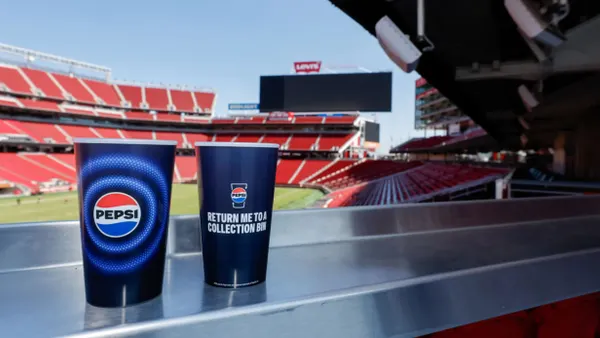Dive Brief:
- Dr. Vijaya Rangari, a scientist at Tuskegee University in Alabama, has engineered a bioplastic claimed to be more flexible than other bioplastics and rapidly biodegradable, made from petroleum polymer, cornstarch-derived polymer, and a key ingredient — tiny eggshell shards. Rangari believes the technology may someday be able to be used to make grocery bags, food containers, and other retail packaging, according to a University press release.
- Leveraging a $1 million National Science Foundation grant to create products from natural waste, Rangari embarked in an experiment that involved washing and grinding egg shells, exposing them to ultrasonic waves, and infusing tiny particles into the mixture of polymers, ultimately increasing flexibility over other bioplastic blends by 700%.
- The research was presented at the 251st National Meeting & Exposition of the American Chemical Society (ACS) last week in San Diego.
Dive Insight:
300 million tons of plastic are generated every year, mainly from environmentally harmful fossil fuels which can cause harm when burned by releasing carbon dioxide. But plastics have proven a necessity for their protective properties, preventing spoilage and other damage to billions of dollars worth of consumer goods. So the race is on to find technology that will yield plastics that are durable and flexible, yet will completely break down shortly after the end of their lives.
Rangari and his graduate student partner think they may have hit a mile marker, discovering an eco-friendly blend that will meet product manufacturers' needs while reducing carbon footprint.
"These nano-sized eggshell particles add strength to the material and make them far more flexible than other bioplastics on the market. We believe that these traits — along with its biodegradability in the soil — could make this eggshell bioplastic a very attractive alternative packaging material," said Rangari in a press release.
Other scientific developments involving plastic have surfaced recently, including the discovery of a bacteria, idonella sakaiensis, which can eat through PET plastic.









